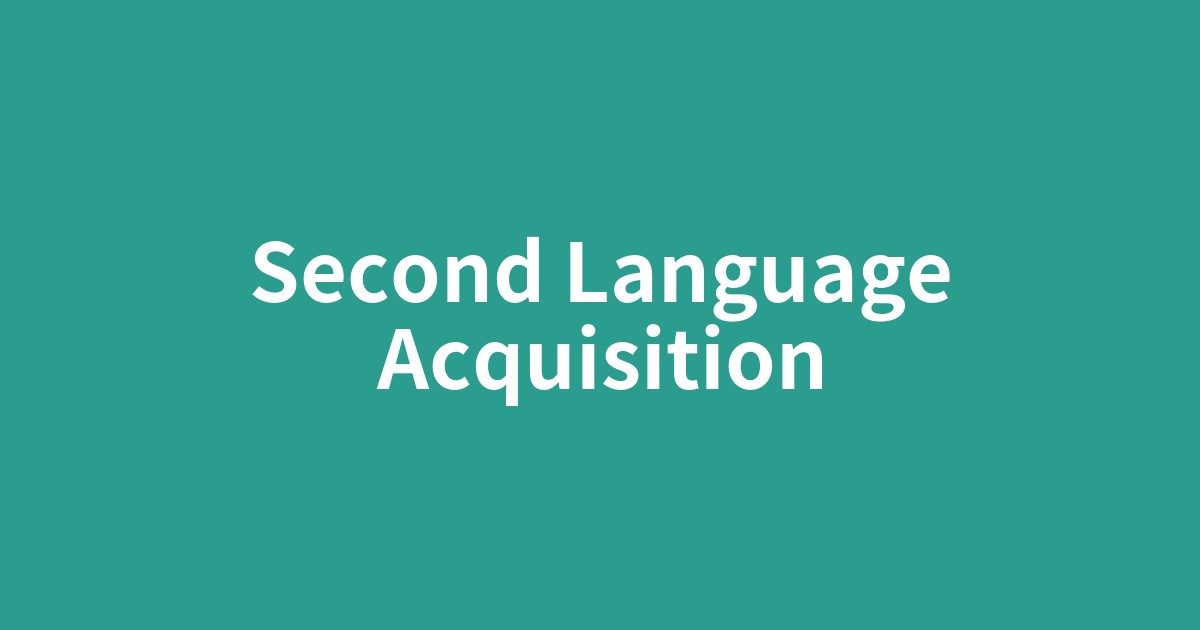このページは、歴史や文化の物語を楽しみながら、その文脈の中で重要な英単語を自然に学ぶための学習コンテンツです。各セクションの下にあるボタンで、いつでも日本語と英語を切り替えることができます。背景知識を日本語で学んだ後、英語の本文を読むことで、より深い理解と語彙力の向上を目指します。

子どもと大人では、言語の学び方がどう違うのか。モチベーション、学習環境、そして脳のplasticity(可塑性)など、科学的な知見を紹介。
この記事で抑えるべきポイント
- ✓「臨界期仮説」は絶対的なものではなく、特に発音以外の領域では、大人の学習に限界があることを示すものではないという見方があること。
- ✓大人の学習者は、確立された母語の知識や高度な認知能力(論理的思考力など)を活かした「明示的学習」が得意という強みを持つこと。
- ✓脳には「可塑性(Plasticity)」があり、年齢に関わらず学習や経験によって変化し続けるため、大人になってからの言語習得は科学的にも可能であること。
- ✓大人の第二言語習得の成否は、本人の「モチベーション」や、学習を継続できる「環境」といった心理的・外的要因に大きく影響されること。
第二言語習得の科学 ― 大人が英語を学ぶということ
「なぜ子どもはあんなに簡単に言葉を覚えるのに、大人の自分はこんなに苦労するのだろう?」多くの英語学習者が、一度は抱いたことのある普遍的な疑問ではないでしょうか。しかし、その感覚的な「壁」を理由に、学びを諦めてしまうのはあまりにも早いかもしれません。この記事では、第二言語習得の科学的な知見に基づき、その問いに多角的な答えを提示します。大人の学習者だからこそ持つことができる武器と、脳が秘める可能性に光を当て、あなたの学習に新たな視点と希望を提供します。
The Science of Second Language Acquisition: What It Means for Adults to Learn English
"Why do children learn languages so easily, while I, as an adult, struggle so much?" This is a universal question that many English learners have likely asked themselves. However, it may be too soon to give up on learning because of this perceived "wall." This article, based on scientific findings in second language acquisition, will offer multifaceted answers to that question. By shedding light on the weapons that only adult learners possess and the potential hidden within the brain, we aim to provide you with a new perspective and hope for your learning journey.
「臨界期」の壁は乗り越えられるか? ― 子どもと大人の学習メカニズム
言語習得には、感受性が特に高い「臨界期」が存在するという説を聞いたことがあるかもしれません。これは「臨界期仮説(hypothesis)」と呼ばれ、特にネイティブのような発音を身につける上では、幼少期が有利であるという考え方を支えてきました。しかし、近年の研究では、この仮説は絶対的なものではなく、特に文法や語彙といった領域では、大人の学習に限界があることを示すものではない、という見方が強まっています。
Can the "Critical Period" Wall Be Overcome? — Learning Mechanisms in Children and Adults
You may have heard of the theory that there is a "critical period" of heightened sensitivity for language acquisition. This is known as the critical period hypothesis, and it has long supported the idea that early childhood is advantageous, especially for acquiring a native-like accent. However, recent research suggests this hypothesis is not absolute. Particularly in areas like grammar and vocabulary, it does not necessarily indicate a limit to adult learning.
絶望するのはまだ早い ― 大人の学習者が持つ「武器」とは
大人には、子どもにはない強力な「武器」が備わっています。その一つが、すでに確立された母語の知識です。私たちは母語の構造を土台にして、新しい言語のルールを比較・分析し、効率的に理解することができます。これは、記憶や思考を司る、高度な「認知(cognitive)」能力のなせる技です。物事を論理的に捉え、複雑な情報を整理する力は、大人の学習を強力に後押しします。
It's Too Early for Despair — The "Weapons" of an Adult Learner
Adults are equipped with powerful "weapons" that children do not have. One of these is their established knowledge of their native language. We can use the structure of our first language as a foundation to compare, analyze, and efficiently understand the rules of a new language. This is a feat made possible by advanced cognitive abilities that govern memory and thought. The power to think logically and organize complex information strongly supports adult learning.
脳は生涯学び続ける ― "Plasticity"という希望の科学
大人の学習者にとって最も心強い科学的根拠は、脳が持つ「可塑性(plasticity)」という性質にあります。これは、脳が経験や学習によって、その構造や機能を変化させ続ける能力のことです。かつては、大人の脳は完成されていて変化しないと考えられていましたが、近年の「神経科学(neuroscience)」の発展により、年齢に関わらず、新しいことを学ぶことで神経回路が新たに構築・強化されることが明らかになりました。
The Brain Keeps Learning for a Lifetime — The Hopeful Science of "Plasticity"
The most encouraging scientific evidence for adult learners lies in a property of the brain called plasticity. This is the brain's ability to continue changing its structure and function in response to experience and learning. It was once believed that the adult brain was fixed and unchangeable, but recent advances in neuroscience have revealed that new neural circuits can be built and strengthened through learning, regardless of age.
結論:科学を羅針盤に、自分だけの航路を描く
子どもと大人の言語習得は、どちらが優れているかという単純な比較で語れるものではありません。それは、異なる能力と戦略に基づいた「特性の違い」です。大人の私たちは、自らが持つ論理的思考力や明確な目的意識といった強みを自覚し、脳の可塑性を信じること。そして、科学的知見に基づいた戦略を立てることで、効率的に言語の「熟達度(proficiency)」を高めていくことが可能です。科学という羅針盤を手に、あなた自身の学習という、希望に満ちた航海へと出発しましょう。
Conclusion: Charting Your Own Course with Science as Your Compass
Language learning in children versus adults cannot be described in a simple comparison of which is superior. It is a "difference in characteristics" based on different abilities and strategies. As adults, we must recognize our strengths, such as logical thinking and clear motivation, and believe in our brain's plasticity. By creating a strategy based on scientific knowledge, it is possible to efficiently increase our language proficiency. With science as your compass, let's embark on your own hopeful voyage of learning.